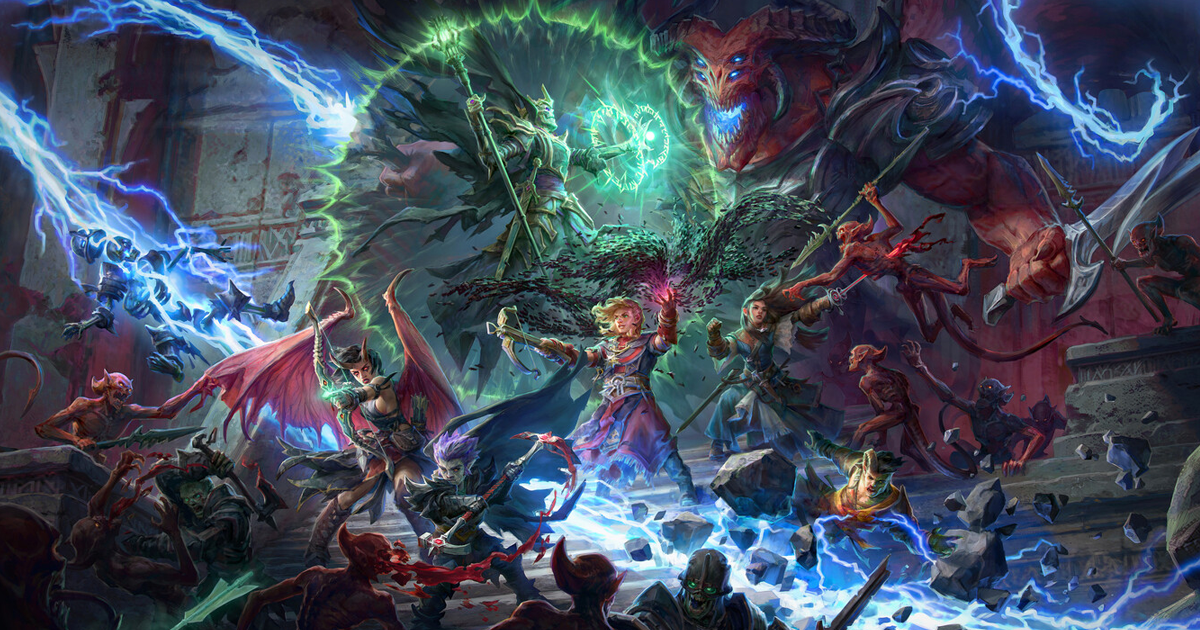Raising funds for future sales is a common scenario in the mobile f2p games market. However, it also works with premium titles on Steam. That’s how the Russian role-playing blockbuster Pathfinder: Wrath of the Righteous received money for marketing. We talked about the mechanism of attraction and the deal with GamesBoost42, which acted as a financial partner of the game.
Pathfinder: Wrath of the RighteousAlexander Semenov, Editor-in-Chief App2Top.ru : Andrey, hello!
The Pathfinder story is interesting to everyone, but let’s dot the I’s first and talk about the funding model. What is meant by raising money for future revenue?
Andrey Postnikov — CBDO in GamesBoost42Andrey Postnikov, CBDO at GamesBoost42: Sasha, hi.
Come on. Only I’ll clarify right away: not future revenue, but Future Receivers. We are used to using English terms.
Future Receivers are the future, non—recurring debt of platforms (stores, advertising grids, etc.). In fact, this is the forecast revenue for the future period (6-12 months).
In most cases, publishers use this mechanism to scale advertising companies and ensure their continuous operation.
The simplest example:
The team launches an advertising campaign for the game and sees excellent results on it. Based on the KPIs received, she understands that if you scale the costs of promotion, you can earn more. But there is a problem: the revenue received from the ongoing advertising campaign will come to the account in 30-60-90 days, and there are no additional funds to increase the advertising budget at the moment. At this moment, she turns to companies that are ready to buy back the revenue already earned from her, but deferred in time.
As far as I know, is this a common scheme in mobile?
Andrey: Yes. Available and Future Receivers factoring is a standard tool for working in the mobile market.
To put it simply, the factoring company here is a kind of add-on to the platform where the product is distributed. We can say that this is an add-on to the App Store and Google Play, which allows you to receive funds already earned on these platforms to your account much faster and open Funding Lines (something like credit lines of advertising platforms).
But it wouldn’t be possible if it weren’t for the transparency of the mobile market?
Andrey: Of course, because before the company provides funds, it checks the game, prepares a forecast for it, including starting from analytical metrics (ARPPU, ARPU, LTV, ROI, ROAS, and so on).
So there is no risk with this type of investment, right?
Andrey: There are always risks! Yes, there are quite a lot of analytical tools that allow you to process raw data, but numbers are only one of the elements of the market.
The mobile app market is very dynamic. There is high competition here, the policy of platforms changes from time to time, there is seasonality, there are changes in the advertising market, new types of monetization regularly appear. Moreover, state regulators are now increasingly acting as a new actor.
All this affects the performance of both a separate company and a separate product.
OK, but these are common risks for the market. What I’m getting at is: it’s one thing to invest in a mobile game where you see live numbers, quite another in a PC project, and even premium.
Andrey: Here in the forecast model, of course, completely different parameters work. The “risk profile” is assembled according to completely different principles.
“Risk profile”?
Andrey: When starting work with a client, the so-called “risk profile” is usually collected. This is a document in which we try to take into account not only the numbers, but also many other parameters related to both the company and the product.
And how is it calculated for a Steam game?
Andrey: This also takes into account: the number of vishlist and subscribers to the community hub, the results of crowdfunding campaigns, pre-orders, release date, competition in the genre, marketing and production plan, and much more.
In addition to the data directly related to the game, there is a legal analysis of the company, its founders, credit history research, and so on. It also allows you to assess the risks of working with the team and the product.
So have you worked with Pathfinder: Wrath of the Righteous?
Andrey: Yes. But, of course, with variations.
In the situation with the game, we looked at the results of Kickstarter, the current vishlist, its dynamics, as well as the dynamics of community hub subscriptions, evaluated the regional prices of the product and DLC publications, the results of current marketing campaigns, release date, distribution platforms, technical condition of the build, evaluated the publisher, the legal status of the company, current distribution agreements, and so on next.
By the way, to what extent is working with a premium PC product using such a financing model a standard story today?
Andrey: I have not heard about the facts of any factoring companies working with products of this type.
Was it scary to give money at a premium?
Andrey: Sasha, Pathfinder: Wrath of the Righteous is not our first client with a premium product.
In silent mode, we have already managed to work with a number of paid games. There were failures, yes, but now we have found a model that accurately predicts the revenue of the project, based on the data mentioned above.
Okay, but why did the guys decide to resort to fundraising at all? Pathfinder: Wrath of the Righteous is an expected and major title. With a good budget.
Andrey: For the same reasons that mobile companies resort to such a model.
The guys decided to scale advertising campaigns by selling part of their future revenue.
At what stage did Owlcat Games apply for funding?
Andrey: When I was preparing to launch pre-sales.
Can you voice how much money was discussed? At least at the level of the number of zeros?
Andrey: About six zeros.
You made a forecast for the game. Can you share how many copies (regardless of the actual data), according to your analysis, you predicted the title on Steam?
Andrey: More than 300 thousand copies in the first month of sales. More than a million copies from all platforms in 6 months.
And, you know, he was very careful. As the guys themselves recently announced, sales of the game in the first week alone amounted to 250 thousand copies.
It turns out that you are satisfied with the cooperation and have definitely repulsed your investments?
Andrey: We are very happy working with the team.
In fact, I still remember how they launched Kingmaker. And even then Owlcat Games appeared “on the radar” of the gaming industry.
When the opportunity for cooperation appeared, we did not hesitate for a long time. Firstly, the guys provided all the necessary information. Secondly, it was a great chance to test our model on a large and iconic project.
The current financial results of the work are more than positive. We are happy to continue working with Owlcat in the future.
Good luck!


